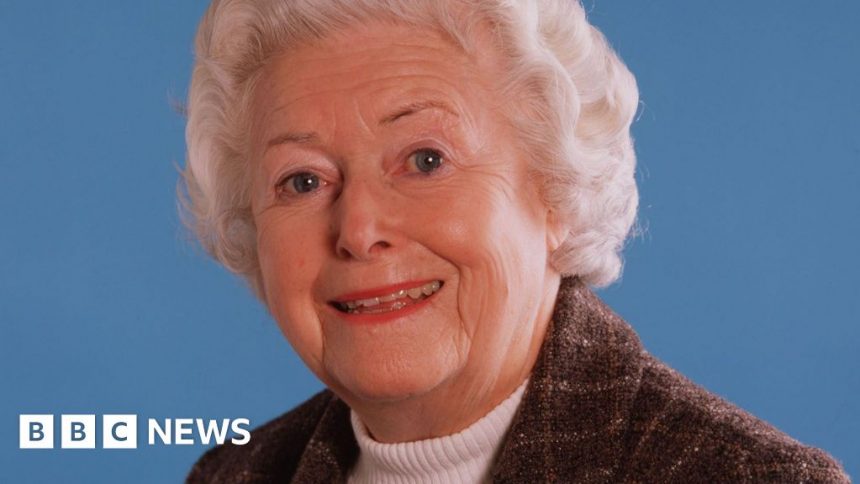June Spencer: Veteran Archers star who found art could imitate life
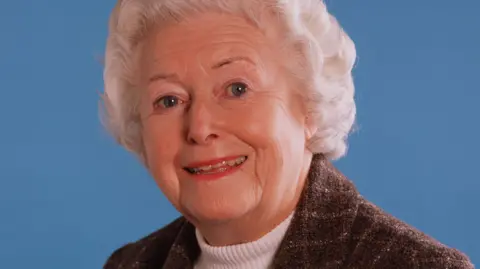 BBC
BBCJune Spencer, who has died aged 105, was the last surviving original cast member of The Archers.
For nearly 70 years, she played Peggy Woolley in the long-running radio drama: one of the best-loved matriarchs in British broadcasting.
Spencer helped launch BBC Radio’s “everyday story of country folk” on 1 January 1951. Clement Attlee was Prime Minister, and meat, cheese, sugar, and petrol were still being rationed after World War Two.
As Peggy, she weathered the ups and downs of life in Ambridge, with plot lines including alcoholism, gambling, and dementia, until Spencer’s retirement in 2022 at the age of 103.
At the time, her colleagues paid tribute to an actor who never fluffed a line.
“I have rarely worked with such an inventive, focused and technically brilliant actor,” said Jeremy Howe – the editor of the programme, “or with such a lovely person”.
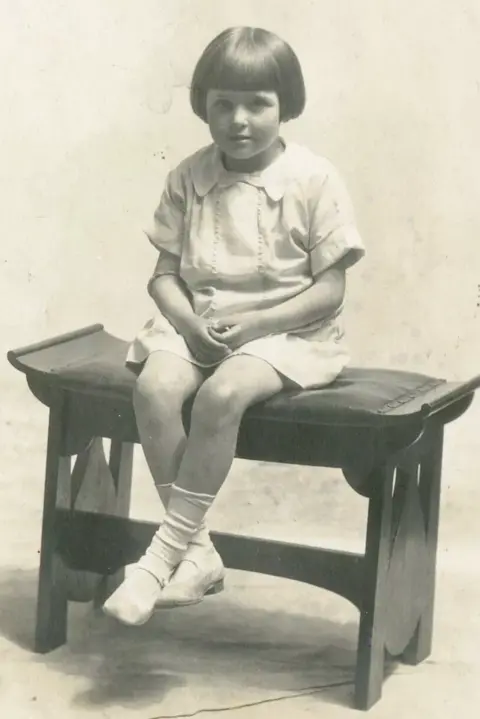 June Spencer
June SpencerJune Rosalind Spencer was born on 14 June 1919, just six months after the end of World War One.
Her acting career began at the age of three, when she was cast as King of the Land of Nod in a school play. When she heard the audience laugh, June knew it was the life for her.
She went to Nottingham High School for Girls, which she found “very stark, grey and cold”.
She was forced to give up sport – her favourite lesson – when a doctor somehow misdiagnosed a heart condition.
An only child, her father was a “sensible and supportive” biscuit salesman, but her mother was another story.
A “complex woman”, Mrs Spencer had once aspired to the stage herself, but – according to her daughter – “just gave up on life… and decided she was an invalid at the age of 40”.
June Spencer had little choice but to leave school to look after her mother – who eventually lived until she was 94.
Miserably, mother and daughter sat together in a darkened room in case Mrs Spencer had “an attack”.
Her headmistress was angry, complaining that her former pupil was throwing her life away. “I was frightened of her,” June later recalled.
“She told me, ‘Of course, you can’t expect to get anywhere without your School Certificate’.
“I have thought of those words many times since, particularly when I received my OBE.”
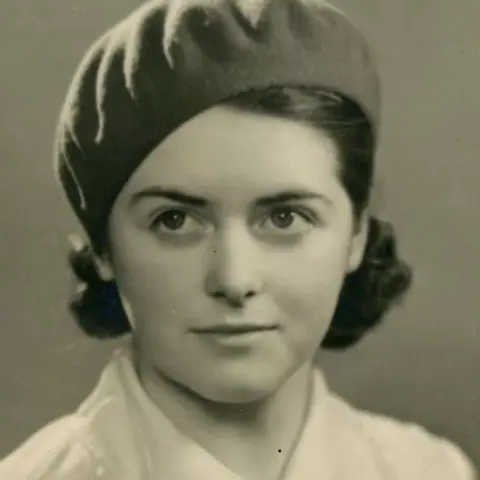 June Spencer
June SpencerIn her teens, the aspiring actress enjoyed writing comic monologues – performing them as part of the after-dinner entertainment at local Masonic lodges.
But with her heart set on the stage, her mother was obstructive: refusing to let her daughter sit the exams for the Royal Academy of Dramatic Art.
“I think my mother thought I would fall in with a bad lot,” Spencer said. “When I did finally get in [to the theatre] she said: ‘Oh well, I suppose it was inevitable’.”
She joined a drama club, studied for a London Guildhall drama school certificate, and finally joined a local theatre company in 1942.
The same year she married a “fair-haired, blue-eyed boy with the cheekiest grin I’d ever seen”.
She had first met Roger Brocksom when she was 17 years old, on holiday near Skegness – but he didn’t have the money to buy her a ring.
The wedding took place while he was on leave from the army; wartime shortages meant they had rice paper rather than icing on the cake.
A series of small parts on BBC radio programmes followed, and – by the time her husband returned from the war – Spencer was finding regular work.
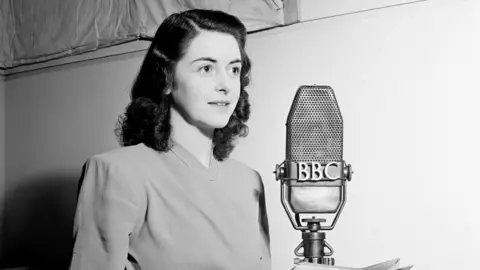
Then came the moment that changed her life.
The founder of The Archers, Godfrey Baseley, is said to have talked openly in meetings about who was going to be in his new programme – and news travelled fast.
It reached a mystified June Spencer while she was getting lunch in the BBC canteen.
“A girl said to me, ‘Oh, you’re going to be in The Archers, aren’t you?’” she recalled. “And I said, ‘Am I? What’s The Archers?’”
In 1950, there were a few pilot episodes and then the big launch on New Year’s Day, 1951 – with June Spencer playing a heavily pregnant Grace Archer.
The series hoped to be a public service for farmers, with gentle storylines that brought urban listeners into rural surroundings – almost as if they were eavesdropping on farmers and their wives.
To start with, Spencer had a 13-week contract and little idea that she was helping to create a unique slice of British life.
The shows were then broadcast live, with producers creeping in and scribbling alterations on scripts, moments before she read them.
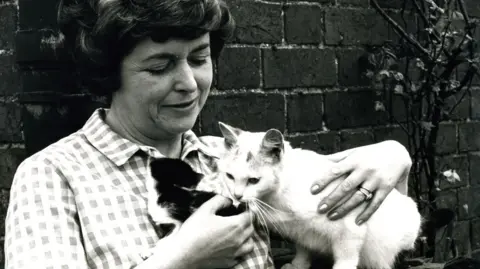
But The Archers was an instant hit with the actors – despite never having their credits read out on air – in demand for local appearances.
“I remember going down to a gathering of all the Women’s Institutes in Cornwall,” June recalled, “and I was mobbed. It was quite frightening.”
There was a brief break from the show when June and Roger adopted two children in the late 1950s. Thelma Rogers took over the part for a while, but soon returned to the theatre.
On taking back the role, Spencer insisted she had little in common with Peggy, who rather lacked a sense of humour, but her on-air journey from young barmaid to grieving widow saw them both involved in some of the show’s strongest storylines.
Peggy’s first husband, Jack Archer, succumbed to alcoholism, while her second husband Jack Woolley – with whom she hoped to enjoy a happy retirement – was diagnosed with Alzheimer’s.
The show’s slow-moving plot lines meant each disease unfolded over years – as they do in real life. And both issues were close to June’s heart.
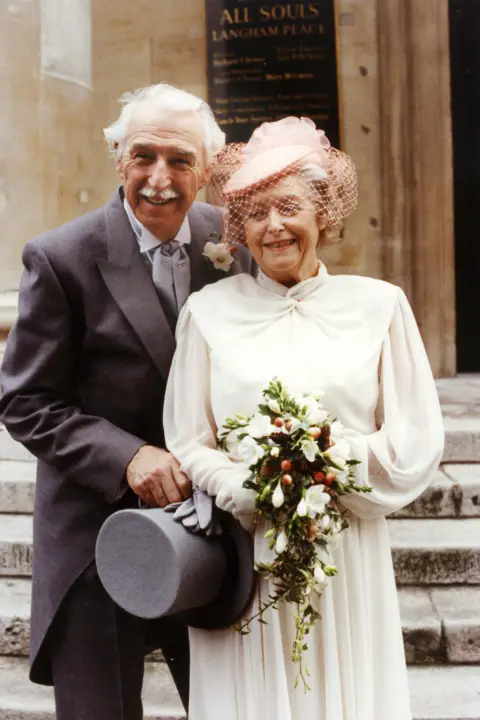
Around the time of her Golden Wedding anniversary, Spencer had noticed that Roger’s memory “was playing him false” and “then the repetitive questions started,” she said.
When Peggy Woolley’s husband was given the same disease in The Archers, June was supportive and – with her experience of Roger’s gradual disintegration – was often consulted by the scriptwriters.
Roger passed away in 2001. Five years later, June saw her son David – a ballet dancer who had lost his career through injury – die of alcohol abuse. He was 55 years old.
For Spencer, such things were not unusual occurrences of life imitating art. Her attitude was that every family experiences traumas and disasters, and drama helps them to deal with it.
“We tackle difficult situations that come up in real life, and treat them without being sensational,” she said.
“I think people appreciate that. When they have the same sort of problems, they hear how the Archers coped, and I think it helps them.”
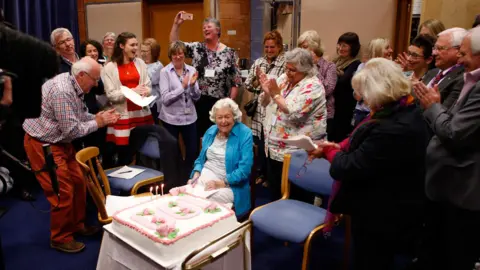
June Spencer was made an OBE in 1991 and a CBE in Queen Elizabeth’s Birthday Honours List in 2017.
Interviewers who came to her home in rural Surrey were routinely charmed.
“It’s hard not to go overboard with admiration for a nonagenarian who remains so unaffected by her fame on the one hand,” wrote one, “and some of the awful things life has thrown at her on the other.”
She held a special place in the nation’s heart as queen of its longest-running radio drama, and was thought of with enormous affection by her fellow cast members.
June “shone through sadness without a word of complaint,” recalled Charles Collingwood – who plays Brian Aldridge, her fictional son-in-law, “and always remained immense fun”.



